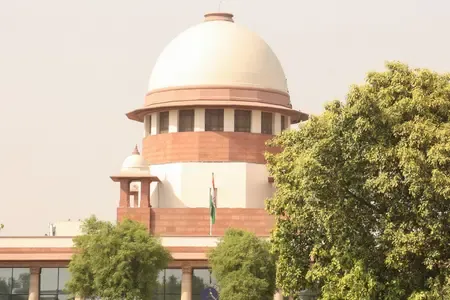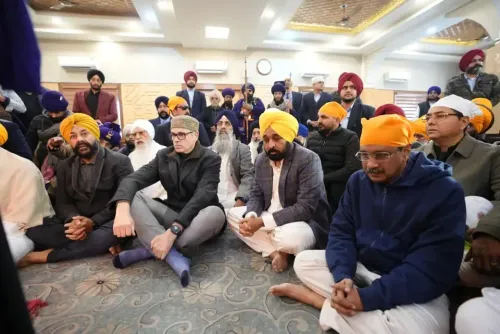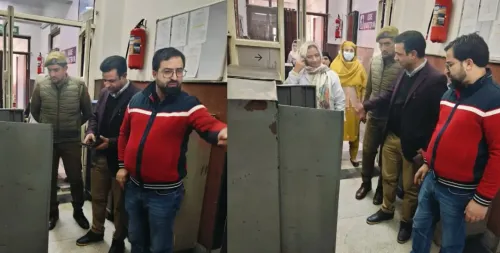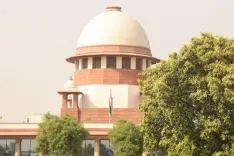What is Mayawati's New Strategy for BSP? Key Lessons from Bihar Results
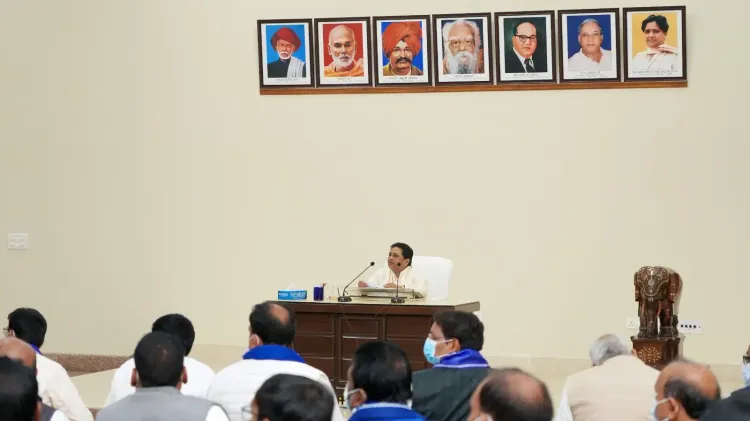
Synopsis
Key Takeaways
- Strengthening party organization is a key focus for the BSP.
- Mayawati emphasizes the importance of social justice and constitutional rights.
- Engagement in electoral politics is crucial for Bahujan self-respect.
- The legacy of Baba Saheb Ambedkar remains central to BSP's mission.
- Active participation in voter list revisions is essential for safeguarding voting rights.
Lucknow, Nov 19 (NationPress) The leader of the Bahujan Samaj Party (BSP), Mayawati, unveiled the party's updated organizational strategy during a gathering of party leaders on Wednesday. She highlighted that enhancing the party's structure across various states is now the foremost objective.
During the state-level review meeting, she addressed leaders from Maharashtra, Tamil Nadu, Karnataka, Andhra Pradesh, Telangana, Bihar, and Jharkhand.
Mayawati asserted that the BSP's current struggle transcends mere electoral politics, stating, “This battle is for protecting the Constitution, promoting social justice, and ensuring Bahujan self-respect.”
She urged party units to approach every initiative—from the ongoing thorough revision of voter lists to preparations for Dr. B.R. Ambedkar’s death anniversary on December 6—with a “missionary spirit.”
During the meeting, Mayawati reviewed the progress of her previous directives aimed at broadening the party's appeal among diverse societal segments in these states, emphasizing the need to address any organizational weaknesses.
She articulated that continuing the legacy and principles of Baba Saheb Ambedkar and Kanshi Ram truly reflects the public and national interest.
Mayawati pointed out that the plight of Dalits, tribals, backward classes, and the impoverished in the western and southern regions is comparable to that in the north.
“The involvement of these groups in governance remains significantly low, which is the core reason for their underdevelopment,” she noted.
Recalling the BSP’s administration in Uttar Pradesh, Mayawati mentioned the genuine attempts made to uplift marginalized communities, but lamented that “communal and casteist politics” obstructed the progress.
“Currently, reservations are merely nominal, backlogs remain unaddressed, and the interests of the Bahujan community are consistently overlooked. Electoral strength has become the crucial tool for upholding Bahujan self-respect,” she elaborated.
She encouraged party officials to be fully engaged during the Special Intensive Revision (SIR) of Voter Lists, warning that negligence might lead to “millions losing their constitutional voting rights.”
Mayawati also warned that past elections were swayed by monetary influence and the misuse of governmental resources, whereas current administrations now seem to manipulate public sentiment through “government funds.” She stated that this escalates the challenge of winning elections, thereby necessitating strengthened organizational readiness.
The BSP chief praised the enthusiasm exhibited by party workers at the October 9 commemoration in Lucknow for Kanshi Ram’s death anniversary, asserting that such energy must be reinvigorated within their respective states to propel the Bahujan movement—from the “exploited to ruling class.”
She directed that the observance of Ambedkar’s death anniversary on December 6 should be carried out with utmost commitment, not merely as a procedural obligation, to ensure the essence and objectives of the Bahujan movement remain potent.

